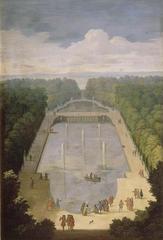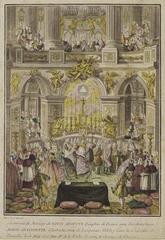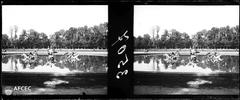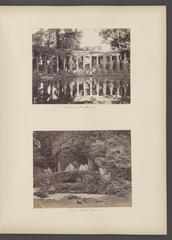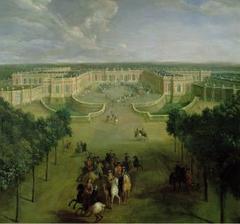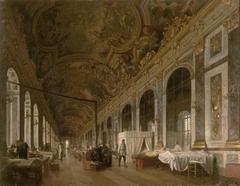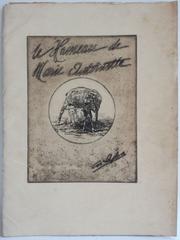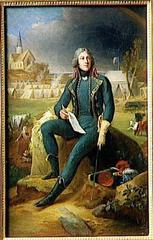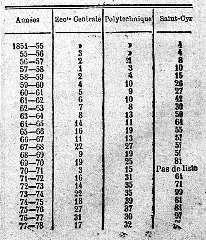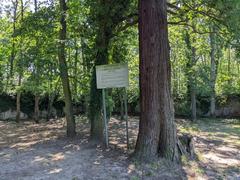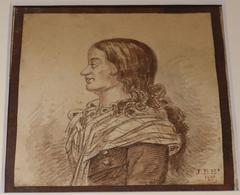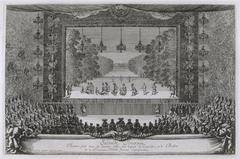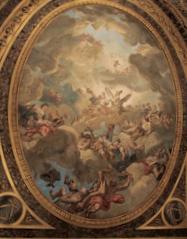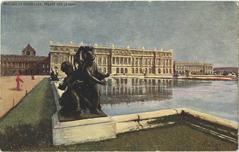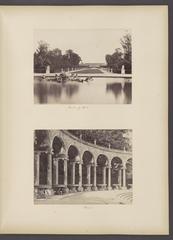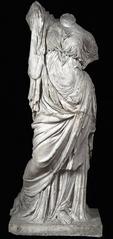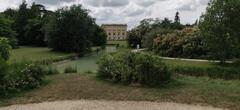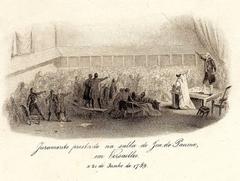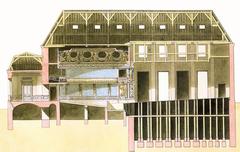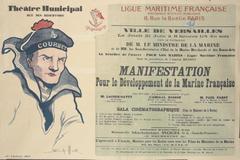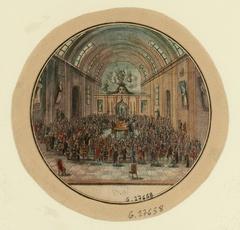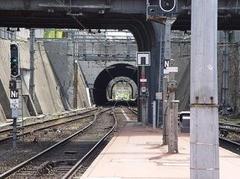Couvent des Récollets Versailles: Visiting Hours, Tickets, and Guide to Historical Sites in Versailles
Date: 04/07/2025
Introduction
Tucked away just behind the grandeur of the Château de Versailles, the Couvent des Récollets is a remarkable testament to four centuries of French religious, social, and cultural history. Established in the 17th century for the Récollets—a reformed Franciscan order—this site has evolved from a monastic retreat to a symbol of Versailles’ adaptability and resilience. Today, the Couvent des Récollets stands as an evocative blend of preserved architectural heritage and living culture, offering a tranquil yet compelling alternative to the city’s more frequented landmarks (Centre-les-Récollets; Wikipedia).
This guide presents a comprehensive overview of the Couvent des Récollets, including its historical significance, architectural features, practical visiting information, and tips for an enriching experience in Versailles.
Table of Contents
- Introduction
- Historical Overview: Foundation to Modern Day
- Architectural Highlights and Heritage
- Visiting Information: Hours, Tickets, and Access
- Guided Tours and Special Events
- Nearby Attractions
- FAQ
- Conclusion
- References
Historical Overview: Foundation to Modern Day
Origins and Foundation (17th–18th Century)
Founded in 1684 under the patronage of Louis XIV, the Couvent des Récollets was built to house the Récollets, an austere Franciscan branch dedicated to prayer, charity, and service. The convent’s creation coincided with Versailles’ transformation into the seat of the royal court, with the Récollets serving both religious and practical roles as chaplains and stretcher-bearers for the king’s armies. Their presence reinforced the deep ties between monarchy, faith, and civic life (Wikipedia).
Revolutionary Upheaval and Secularization (1789–19th Century)
The French Revolution marked a dramatic shift for the convent. Suppressed in 1793, the Récollets were expelled, and the buildings repurposed as a prison, aligning with the revolution’s anti-clerical agenda. The site subsequently served as an infirmary and military barracks, reflecting the shifting needs of a rapidly modernizing France (Cityzeum).
Military Heritage and Modern Use (19th–21st Century)
Throughout the 19th and 20th centuries, the convent continued to serve military functions, including housing the 5th Engineer Regiment during World War I. Today, it remains under the administration of the French Ministry of the Armed Forces, hosting the Service technique des bâtiments, fortifications et travaux—a technical service for military infrastructure (Wikipedia).
Recent Preservation and Cultural Role
With its façades and roofs classified as historic monuments in 2016, the Couvent des Récollets has seen renewed efforts at preservation. The adjacent Jardin des Récollets, inaugurated in 2001 and redesigned in 2013, offers public access to green space and connects the convent to contemporary cultural life (Destination Yvelines).
Architectural Highlights and Heritage
Monastic Design
The convent’s layout reflects its Franciscan roots: simple yet harmonious, with a cloister at its core. The cloister remains the most significant surviving element, evoking the spiritual rhythm of monastic life (Cityzeum).
The Chapel and Portal
Though the original chapel was destroyed during the Revolution, its portal endures as a poignant reminder of the site’s tumultuous history. The façades and roofs, now protected, exemplify understated Baroque architecture.
Jardin des Récollets
This tranquil garden, part of the city’s “Cour des senteurs” project, offers a sensory retreat and highlights Versailles’ tradition of horticulture and perfumery (Wikipedia).
Visiting Information: Hours, Tickets, and Access
- Location: 9, rue des Récollets, 78000 Versailles, just behind the Cour des senteurs and a short walk from Château de Versailles (Destination Yvelines).
- Access: By train (Versailles Rive Droite), bus, or on foot from the palace.
- Opening Hours: The convent is not regularly open to the public due to its military function. Public access is granted during special events, notably the European Heritage Days and the Mois Molière festival.
- Typical event hours: Saturday 14:00–18:00, Sunday 10:00–18:00 (with a midday closure).
- Tickets: Admission is free during these special openings. Check official tourism sites for current details.
Accessibility
The historic nature of the building means uneven surfaces and steps; visitors with mobility concerns should contact Versailles tourism offices for advice.
Jardin des Récollets
Open year-round, this public garden is free and accessible, providing a peaceful place to relax and reflect.
Guided Tours and Special Events
- Guided Tours: Occasionally available during open days or by arrangement; check with local tourism offices.
- Events: The convent participates in cultural programs like the Mois Molière and European Heritage Days, offering rare access to the cloister and selected interior spaces.
- Photography: Permitted in the garden and during authorized events; restrictions may apply inside due to military use.
Nearby Attractions
- Château de Versailles: The world-famous palace is within walking distance.
- Cour des senteurs: A hub celebrating Versailles’ perfumery heritage.
- Lambinet Museum: Home to artifacts from the convent, including original bells.
Combine your visit with these sites for a rich cultural itinerary in Versailles.
FAQ
Q: Is the Couvent des Récollets open every day?
A: No, it is only open to the public during special events. Check official sources for details.
Q: Is there an entrance fee?
A: Entry is free during public openings.
Q: Are guided tours available?
A: Yes, on select days or by advance arrangement.
Q: Is the site accessible to people with disabilities?
A: Some areas pose challenges due to historic architecture; call ahead for advice.
Q: Can I visit the garden if the convent is closed?
A: Yes, the Jardin des Récollets is open daily and free to the public.
Conclusion
The Couvent des Récollets is a hidden treasure in Versailles—a site where centuries of faith, history, and civic transformation quietly unfold. While public access is limited, its preserved architecture, tranquil garden, and compelling past make it well worth including in your Versailles itinerary, especially during special events. Plan ahead, explore the nearby attractions, and immerse yourself in a lesser-known but profoundly significant chapter of French heritage.
For up-to-date information on visiting hours, events, and tours, consult the official Versailles tourism website or the official Couvent des Récollets page.
References
Visuals recommended for publication:
- Photo of the cloister with alt tag: “Couvent des Récollets cloister Versailles”
- Image of the historic chapel portal with alt tag: “Historic façade of Couvent des Récollets”
- Map showing location relative to Château de Versailles
